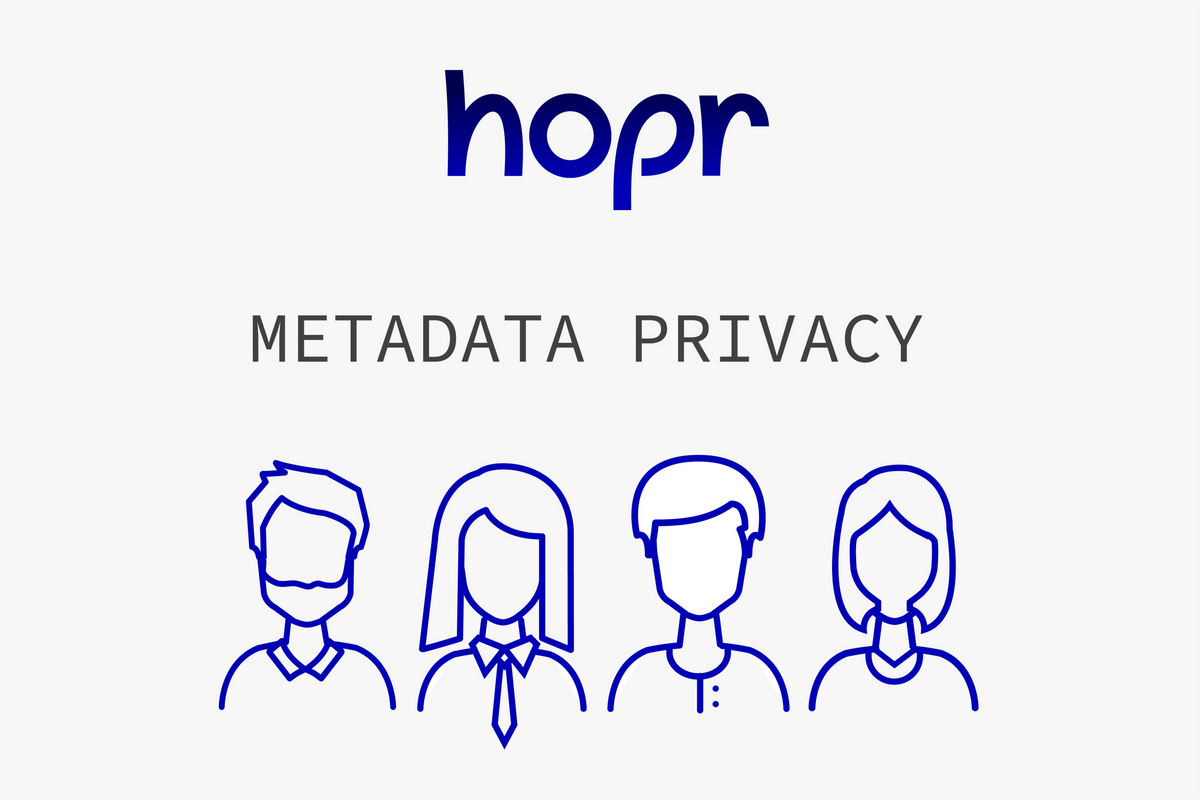Why HOPR’s metadata privacy is the next big thing in data privacy

Data privacy has grown to become quite an interesting subject in recent times, and for the right reasons. A significant percentage of interactions today happen over the internet; from catching up with friends and family on social media to sending an email, searching for a product, and even banking online.
Whilst there has been significant progress in securing user data, traditional setups are still potentially flawed. For instance, in 2018 Facebook suffered a security breach that exposed the personal information of nearly 50 million users. A year later the social media giant was slammed with a $5 billion penalty for privacy-related issues. Facebook is just one in many cases of data privacy-related issues.
Beyond the seemingly high level of security compliance from large corporations and the carefulness of consumers regarding who they give their data to, existing encryption methods protect only the content of the data and not the metadata. Users are still at the mercy of malicious actors.
For clarity, a simple WhatsApp message features end-to-end encryption. However, other information such as who the sender or receiver is, the time of the chat, location, and size of data are not protected. This can be hacked and tracked. And this was why HOPR was founded.
Network-level and Metadata Privacy
HOPR is a decentralized data exchange solution that provides security and data privacy on a whole new level. The blockchain platform provides layer0 security, which allows existing services and applications (including decentralized applications) to communicate in complete privacy. Furthermore, the point-to-point data exchange protocol is based on an incentivized mixnet.
It is worth stating that HOPR is not just another on-chain privacy solution for blockchain transactions. The general network-layer protocol allows users to privately exchange data in the same way a VPN or Tor does.
In a medium post, HOPR’s founder Dr. Sebastian Bürgel described his project as follows:
“HOPR is a way for people, companies, and devices to exchange information online with complete privacy. People who communicate and transact using HOPR — or apps and services which run on top of the HOPR platform — can be completely confident that no-one can find out what data is being shared, who is sending or receiving it, or even how much data is being sent.”
What’s the big deal?
Decentralized Finance, aka DeFi, has been repeatedly touted as the “future of finance.” However, the full potential of DeFi offerings cannot be realized if the loopholes in data privacy are not addressed. For financial transactions to become fully anonymous, metadata has to be protected.
The ability to hide details such as who the sender is, to whom it is being sent, and what is being sent is expedient to the future of data privacy.
HOPR’s solution consists of two layers – a message layer and a payment layer. While the message layer enables a quick, secure, and private transfer of data, the payments layer ensures that individuals who run the message layer are rewarded for their efforts. And this raises the question of incentives.
HORP claims to be the first incentivized open network in metadata privacy. The network allows users to run HORP nodes. Users can also stake and earn rewards in HOPR tokens by providing privacy for Web 3.0. As earlier stated, the network relies on a global distribution of mix nodes. According to Bürgel:
“HOPR is not running a dedicated blockchain. Instead, HOPR can be used as layer-0 privacy foundation on top of which blockchains or other web and web 3 applications and services can be built. HOPR is the first open and incentivized mixnet in which anyone can run a node to provide privacy for others and earn tokens for doing so.”
Individuals who support the transfer of data (hops) by mixing and relaying data are directly rewarded with the native tokens of the network.
Beyond the technology behind the protocol, HORP boasts of a solid community. Before its token launch, the network has caught the interest of over 11,000 followers on Telegram in eleven languages. The project already has a minimum viable product in the form of a hardware device.
Conclusion
The prospect of HOPR appears quite promising. In addition to its growing community and novelty tech, the company has secured some significant partnerships in the blockchain space. In July 2020, Binance Labs led a $1 million seed round for the crypto Tor alternative.
HOPR was launched in response to the growing concerns over online data privacy. If the Swiss company manages to deliver on its promise, then DeFi and blockchain applications would be able to boast of total data privacy.




